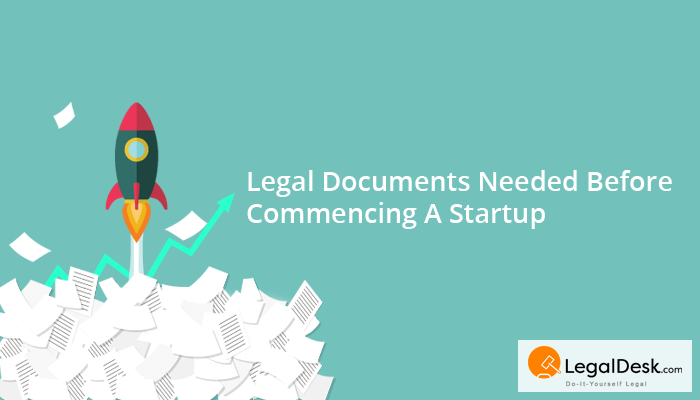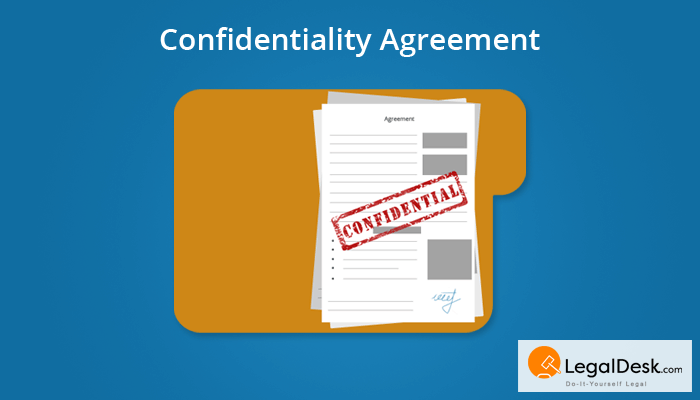Legal documents play a vital role in running your business and helps avoid conflicts and misunderstandings surrounding your everyday working situations. Legal documents also protect the interests of business owners during the course of a company’s life span. They help in ensuring transparency and accountability in case of any conflict surrounding the business space.
Financial planning is the primary aspect of moving your business forward and there will be multiple agreements that need to be signed by you to run your business. In such cases legal documents do play a pivotal role in establishing trust and a smooth functioning manner of running your business in an organised manner.
Formulating an order within your business is a key factor towards building an order. Most startups are in a rush to bring more employees into their company than device an order. The simplest way you can build an order is by building a legal bond that accompanies trust, transparency and accountability in your startup.
Legal Documents Needed For A Startup
Running a startup involves a load of business legal documents such as agreements to buy and sell, managing stocks, joint venture agreements etc. These documents are beneficiary to create an organised working space and protects the interests of the business and its owners over the course of a company’s life time.
These common legal documents will help you determine what your business requires:
-
Bylaws For Corporations
Bylaws define how a company needs to carry forward itself in a legal fashion. In simple, it is a good way to spell out your startup structure, individual roles including governance. Take for instance, a bylaw can help in settling a dispute on a person’s tenure or explain if there needs to be a simple majority to approve a decision.
-
Devising A Business Plan
A business plan may not be a legal document, but instead its a basic formality that keeps your business financially healthy. Devising a map of your businesses’ future is a concrete area of thinking, as building a future plan of your startup will result in a competitive and challenging ecosystem for your employees growth and development. Your startup’s game plan must have clarity on the company’s growth at present and in future and possesses a crisis management plan in case of any internal or external issues. It highlights the the ways in which you can improve strategies within your business and draws the road-map to accomplish it.
-
Memorandum Of Understanding
An MOU is an agreement between two or more parties in a gentle and formal manner. An MOU falls anywhere between a formal contract and a handshake. It includes all formal conversations you have made with suppliers, potential partners and others involved in the business. An MOU is a great way to lay out the terms of a project or relationship between employees and employers in writing. However, in certain cases an MOU will not be legally binding depending on factors like presence and absence of legal members not mentioned in the document.
-
Share Purchase Agreement (SPA)
A share purchase agreement is basically used in times when you induct an investor or partner in your company. It consists of details regarding terms of purchase and sale of shares and the consideration for which shares are being exchanged. It specifies the conditions required to be fulfilled to consummate the sales and guarantees that both the company and entrepreneurs make to the buyer or investor.
-
Licensing Agreement
A licensing agreement is entered by two parties basically in scenarios such as maintaining possession of a product or control over an asset and another company/ individual desiring to use the asset. This type of an agreement grants license to one party to use the asset in a particular manner for a specific period of time. For example: A franchise agreement is the best example of a licensing agreement wherein the franchiser permits the franchise to use the brand name of the franchise.
-
Confidentiality Agreement (Non Disclosure Agreement)
This type of an agreement is entered between parties in order to protect company’s classified information. Also referred to a non disclosure agreement, this bond identifies company’s confidential information and maintains its confidentiality. Basically, a non disclosure agreement is executed by a company or individuals who are doing business together. For example: A company that’s inducting an investor in to its ambit, will sign a non disclosure agreement with the investor before sharing information about themselves.
A non disclosure agreement must include the following:
- What is soo confidential about the information?
- How confidential information should be handled?
- Who owns the information?
- The time period the information will be disclosed.
- The time period for which the confidentiality should be maintained.
In simple, your business information such as Financial records, ideas, customer list etc. must be considered private. A non disclosure agreement is your first line of defence that protects your company’s confidential information. This agreement creates a confidential relationship between your business and its contractors, employees and employers, partners etc.
-
Intellectual Property Assignment Agreement
An Intellectual assignment agreement is a key legal document that determines whether your startup can attract the investments in order to flourish. In a startup, founders must posses complete ownership of all Intellectual property assets in writing to avoid companies trying to copy your business model. During the formation of a new company, the best thing to do is to assign all important intellectual property to the company.
There are two types of Intellectual assignment agreements that need to be taken into account:
- Technology assignment agreements assign startups intellectual property created before the formation of the company.
- Invention assignment agreements assign company’s intellectual property ownership of any work or product created by employees after the company’s formation. A confidential invention assignment agreement is signed by founders and employees. Moreover, the company will own all rights to the Intellectual property portfolio.
-
Operating Agreement (Founders Agreement)
In order to avoid conflicts arising between founding parties of a company, it is advised that owners sign an operating agreement. This agreement must explain the relationship of the founders and mention that certain works will belong to a particular entity in future and outlining a communication and conflict resolution point that can help prevent disputes.
-
Apostille
If your startup has an involvement in international trade with Hague Convention countries, then you will require a certificate known as an ‘apostille’, that validates a public document, so that it can be recognized in another country. However, the use of an ‘apostille’ is valid in countries who are members of the Hague Convention. You don’t have to spend time in creating the document from scratch, instead you can download a pre-existing document template online to begin as a starting point.
-
Employment Agreement And Offer Letter
An employment agreement consists of the obligations and expectations of the company and employee in order to defuse disputes arising within your organisation. This document is also useful in cases where new hires leave soon and disclosing confidential information about your business. In order to make your document strong, it must be reviewed by an experienced employment law body before it is signed by an employee. Startup founders and owners must draw up clear employment contracts and offer letters when hiring new employees. These legal documents will help the employee understand what is expected out of them.
An employment agreement or offer letter must embed the following information:
- Terms of employment: This includes roles and responsibilities, working hours and grounds on which termination can take place.
- Intellectual property ownership of work.
- Job related required commitments.
- Company policy: This includes employment leaves such as vacation days, Paid duration of work, and dress code.
- Employee Expectations.
- Vesting of share by the company.
-
Non-Compete Agreement
A non-compete agreement is a restrictive agreement wherein one party agrees not to enter into/engages/commence any activity, trade or profession which is in direct competition with the other party. The legality of a non-compete agreement varies as per jurisdiction.
Section 27 of the Indian Contract Act, 1872 states that, “Every agreement by which anyone is restrained from exercising a lawful possession or trade or business of any kind, to that extent may be considered as void”.
Therefore the Indian law makes it clear that a non-compete agreement shall not be binding on the parties and the same shall be considered null and void.
Need Legal Documents For Your Startup
If you’ve got that entrepreneur in you, don’t hesitate to get started! Prioritize these legal documents and turn your startup into a non-conflict zone. We at LegalDesk.com will help you accomplish your dream by providing assistance and various legal documents that you need to carry forward to accomplish your entrepreneurial ideas. Click the button below and avail our startup package. Try our service now and stay digitized!



